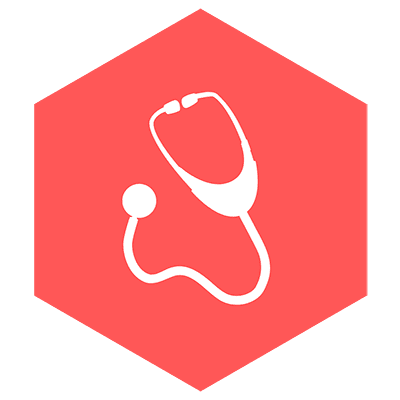Depression is a common and serious mental health disorder characterized by persistent feelings of sadness, hopelessness, and a loss of interest or pleasure in activities.
Clinical depression, or major depressive disorder (MDD), affects over 17 million adults in the United States. For some individuals, this disorder results in severe impairments that interfere with their ability to carry out daily life activities.
Although the symptoms of clinical depression can vary from person to person, it is generally a long-term disorder that has profound emotional, physical, and social impacts.
Unfortunately, there is currently no cure for MDD – but there are many treatment options available to those with depression.
What Causes Clinical Depression?
Depression is a mental health disorder that may be triggered by a combination of genetic, environmental, biological, and psychological factors. We do not know the precise cause, but research has indicated that there are some common factors associated with the disorder.
Common causes and risk factors for depression include…
Biological Factors
Imbalances in some brain chemicals, such as neurotransmitters like serotonin, and dopamine, are believed to play a role in depression. Additionally, changes in hormonal levels (such as during pregnancy or menopause) can contribute to depressive symptoms.
A family history of depression also increases the risk of developing the disorder. Certain genes may also make individuals more susceptible to depression.
Environmental Factors
Traumatic experiences, such as the loss of a loved one or relationship abuse, can trigger depression in susceptible individuals. Early life experiences, including growing up in a dysfunctional family, can also increase the risk of developing depression later in life.
Some individuals may develop depression due to persistent stress, such as work-related stress, relationship problems, or ongoing health issues.
Other Risk Factors
Women are more likely than men to experience depression, largely due to hormonal fluctuations, reproductive events, and social pressures.
Age can also play a role in the likelihood of developing depression. The risks are especially high during adolescence, after giving birth, and later in life.
While these factors can contribute to the development of depression, not everyone who experiences these risk factors will develop the disorder. Depression is a multifaceted condition, and individual experiences and vulnerabilities may vary.
Seeking professional help from mental health experts is essential for accurate diagnosis and treatment.
How Common is Clinical Depression?
Major depressive disorder is one of the most common mental health disorders in the United States. The National Institute of Mental Health (NIMH) estimates that around 7% of U.S. adults had at least one major depressive episode in the past year.
Symptoms of Major Depressive Disorder
Major depressive disorder, also known as clinical depression, is a severe form of depression characterized by persistent and intense symptoms that impact a person’s daily functioning and quality of life.
To be diagnosed with MDD, the symptoms must persist for at least two weeks. The most commonly expressed symptoms include…
Match With Depression Clinical Trials
Have you been diagnosed with major depressive disorder? You may qualify for a trial near you. Tandem Clinical Research is here to match you with:
- Research groups in your area
- The latest treatments
- Scientific clinical studies
Diagnosis of Major Depressive Disorder
Major depressive disorder is typically made by a qualified healthcare professional, such as a psychiatrist or psychologist, through a comprehensive evaluation. The process involves gathering information about the individual’s symptoms, medical history, and the duration and impact of those symptoms.
Here are the key steps involved in diagnosing MDD…
1) Initial Assessment
To begin, the healthcare professional will conduct an assessment to gather information about the patient’s symptoms, medical history, and any relevant family history of mental health conditions. This may include the use of standardized questionnaires or interviews.
2) Diagnostic Criteria
To make a diagnosis, the healthcare professional will refer to the Diagnostic and Statistical Manual of Mental Disorders (DSM-5) and its criteria for diagnosing mental health disorders.
To be diagnosed with MDD, an individual must experience a depressed mood or loss of interest or pleasure for most of the day, nearly every day, for at least two consecutive weeks. Additionally, they must have at least five symptoms from the DSM-5’s list
3) Rule Out Other Medical Conditions
Most healthcare professionals will conduct a thorough evaluation to rule out any underlying medical conditions or substance use that may be contributing to the patient’s symptoms. Certain medical conditions or medications can also mimic or worsen depressive symptoms.
4) Duration and Impact
The healthcare professional will assess the duration and impact of the depression-related symptoms. For a diagnosis of major depressive disorder, the symptoms should have persisted for at least two weeks and significantly impaired the individual’s ability to function in various areas of life, including work, school, relationships, or daily activities.
5) Differential Diagnosis
The healthcare professional will consider other mental health disorders that may present with similar symptoms, such as…
- Bipolar disorder
- Anxiety disorders
- Adjustment disorders.
In all cases, it is crucial to differentiate between different disorders, as treatment approaches may vary.
6) Collaborative Decision-Making
Once a depression disorder diagnosis is made, the healthcare professional will discuss and explain it, then provide information about the condition and potential treatment options.
Treatment for Major Depressive Disorder
Treatment for MDD typically involves a combination of therapies. The specific treatment plan will depend on the severity of symptoms, individual preferences, and the healthcare professional’s expertise.
Major Depressive Disorder Clinical Trials
If you have been diagnosed with depression, you could be a candidate for clinical studies. Participating in trials helps researchers obtain valuable information about depression, which can then influence treatment options and society’s understanding of the disorder.
Researchers are currently studying many aspects of major depressive disorder. This includes the assessment of…
- new treatments for depression
- how genes and environmental factors increase the risk of depression
- how depression diagnoses develop and progress
All of the clinical trials we match patients with are conducted in reputable hospitals, universities, and research centers. If you’re interested, reach out to learn about the clinical trials in your area.
How to Support Loved Ones With Depression
If you have a loved one with a depression diagnosis, they will need your support and understanding as they learn to manage their symptoms. Here are a few of the best things you can do as a friend or family member…
Educate Yourself
Start by learning about clinical depression to better understand what your loved one is going through. You can also research the symptoms, causes, and treatment options that might be available to them. The more knowledge you have, the easier it will be to provide empathetic support.
Work on Your Listening Skills
Do your best to create a safe, non-judgmental space for your loved one to express their feelings. Encourage open and honest communication, and practice active listening by giving them your full attention. Avoid expressing judgment or offering immediate solutions.
Practice Patience and Understanding
No one learns to manage their depression diagnosis overnight. You’ll need to be patient with your loved one as they experience ups and downs. Avoid shaming them for their condition or viewing their depression as a choice.
Offer Practical Support
For many, clinical depression can make simple tasks challenging. Try to offer assistance with responsibilities such as household chores, cooking, or running errands. You can also accompany your loved one to therapy sessions, doctor’s appointments, or support group meetings if they would appreciate your support.
Encourage Professional Help
Encourage your loved one to seek professional help from a therapist, psychiatrist, or counselor who specializes in treating depression. If they have not been working with a professional, you can also offer to help them find resources or make appointments.
Match with Depression Clinical Trials
If you live near New York City, New Orleans, or Orlando, Tandem Clinical Research is here to help you match with trials in the immediate area. We connect patients with trials conducted by professional pharmaceutical, biotech, and medical device companies.
Although there is no current cure for clinical depression, scientists and doctors are conducting ongoing research to find the best possible treatments. The more we learn about depression, the more we understand why it occurs and how we can prevent and treat it.
Consider joining a clinical trial to contribute to the study of major depressive disorder. Your participation could mean a world of difference for people in your situation, both now and in the future.


